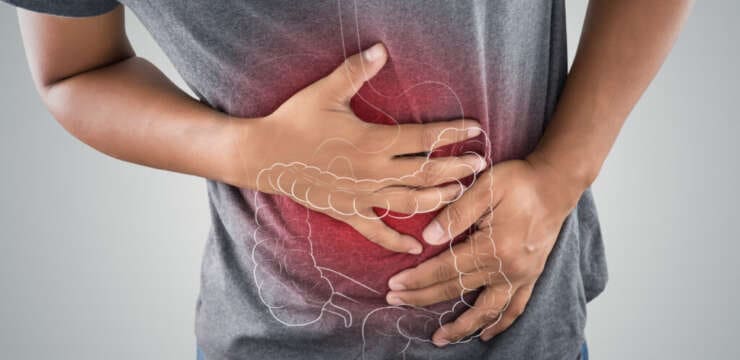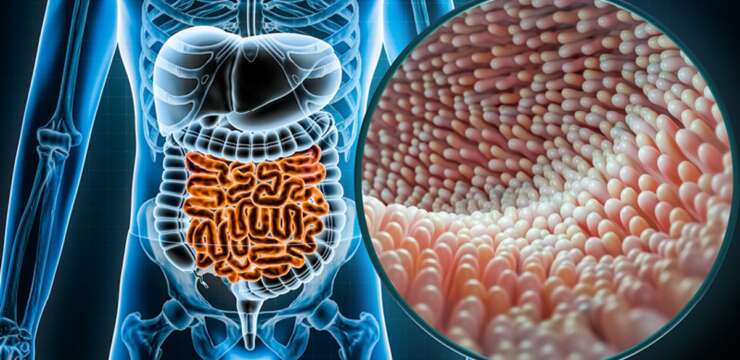How is eucalyptus tea made, and what are its health benefits? Eucalyptus Tea Eucalyptus tea is an herbal tea made from the leaves of the…

Gut and Intestinal Health: The health of an individual’s gut determines what nutrients are absorbed along with what toxins, allergens and microbes are kept out. It is directly linked to the health of the whole body. Intestinal health could be defined as optimal digestion, absorption, and assimilation of food. But this is a job that depends on many other factors. More than 100 million Americans have digestive problems. Two of the top-selling drugs in America are for digestive problems, and they run in the billions. There are more than 200 over-the-counter (OTC) remedies for digestive disorders. And these can and do create additional digestive problems.
If an individual’s digestion is not working properly, the first thing is to understand what is sending the gut out-of-balance in the first place.
Low-fiber, high-sugar, processed, nutrient-poor, high-calorie diet, causes all the wrong bacteria and yeast to grow in the gut and damages the delicate ecosystem in your intestines.
Overuse of medications that damage the gut or block normal digestive function, i.e. acid blockers (Prilosec, Nexium, etc.), anti-inflammatory medication (aspirin, Advil, and Aleve), antibiotics, steroids and hormones.
Undetected gluten intolerance, celiac disease or low-grade food allergies to foods such as dairy, eggs, or corn.
Chronic low-grade infections or gut imbalances with overgrowth of bacteria in the small intestine, yeast overgrowth, parasites.
Toxins like mercury and mold toxins damage the gut.
Lack of adequate digestive enzyme function, from acid-blocking medications or zinc deficiency.
Stress can alter the gut’s nervous system, cause leaky gut, and change the normal bacteria.
Visits for intestinal disorders are among the most common trips to primary care doctors. Most, which also includes most doctors, do not recognize or know that digestive problems wreak havoc in the entire body. This leads to allergies, arthritis, autoimmune disease, rashes, acne, chronic fatigue, mood disorders, autism, dementia, cancer, and more.
Having proper gut and intestinal health is absolutely central to your health. It is connected to everything that happens in the body.
Functional medicine and health coaches are able to look at the source of the gut imbalance and run diagnostic tests to discover the exact type and number of bacteria imbalances. From here, natural supplements can be recommended such as a probiotic to recreate a healthy gut microbiome.

How is eucalyptus tea made, and what are its health benefits? Eucalyptus Tea Eucalyptus tea is an herbal tea made from the leaves of the…

For individuals with chronic pain conditions, what are the risks of developing peptic ulcers? NSAIDs and Peptic Ulcers A peptic ulcer is a sore in…

Can individuals reduce stress affecting their daily routine through treatments to restore their gut health? Introduction Everybody in the entire world has dealt with stress…

Can individuals dealing with back pain find treatment to reduce gut pain associated with SIBO to improve body health? Introduction Many individuals have noticed that…

For individuals dealing with constipation issues, can using an osmotic laxative help treat and prevent constipation? Osmotic Laxative Osmotic laxatives can help treat or prevent…

Emotional challenges like anxiety and depression or digestive disorders can cause individuals to experience a nervous stomach. Can knowing common symptoms, what causes them, and…

Can kimchi benefit individuals trying to incorporate more fermented foods into their diet? Kimchi Kimchi is a flavorful and nutritious food packed with nutritious vegetables.…

Can knowing which foods to eat help individuals recovering from food poisoning restore gut health? Food Poisoning and Restoring Gut Health Food poisoning can be…

“For individuals dealing with digestive issues or bowel disorders, can adding peppermint to a nutrition plan help manage symptoms and digestion?” Peppermint First grown in…

“Can incorporating nopal or prickly pear cactus into one’s diet help individuals trying to lower blood glucose, inflammation, and risk factors associated with heart and…

“For individuals dealing with ulcerative colitis, can acupuncture treatment benefit those with UC and other GI-related issues?” Acupuncture For Ulcerative Colitis Acupuncture has been used…

Can individuals dealing with gut inflammation be relieved with electroacupuncture to reduce low back pain symptoms & improve gut function? Introduction When it comes to…

Can individuals dealing with gut inflammation find relief from acupuncture therapy to reduce associated pain symptoms like back pain? Introduction When many start thinking about…

“For individuals experiencing frequent bloating or constipation, could performing a colon cleanse help alleviate your symptoms?” Colon Cleanse Individuals can clean out their bowels, colon,…

“For individuals switching to non-dairy and plant-based diets, can oat milk be a beneficial substitute for non-dairy milk drinkers?” Oat Milk Oat milk is a…

“For individuals wanting to eat pancakes regularly, are there ways to increase pancake nutrition and lower the calorie and carb counts so they can be…

“For individuals with digestive and other health issues, could resistant starch provide health benefits?” Resistant Starch Typical starchy foods are simple starches that are rapidly…